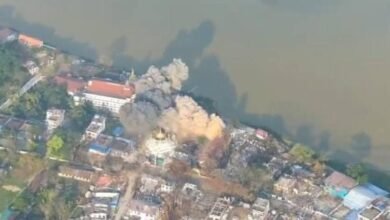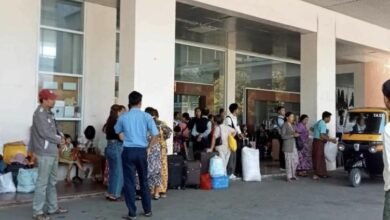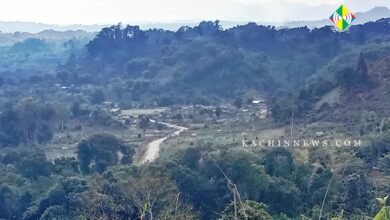Govt Failed to Address Land Grievances

Since the National League for Democracy entered office, after winning the 2015 election, many land disputes in Kachin State remain unresolved, according to the Federal Ethnic Farmer Network (FEFN).
Lashi Awng Lat, from FEFN, blamed the Vacant, Fallow and Virgin land law (VFV), first approved in 2012, for preventing the resolution of ongoing land disputes, as well as causing new ones.
Land grievances in Hukawng Valley have been happening for over 14 years, he said. “The government already knew about the problem. The people demanded a solution but the government has failed to address it.” Nor have the farmers been given a Land Use Certificate (LUC), also called a Form-7, he explained.
In 2004, the government established a 8,452 square mile tiger reserve in Hukawng Valley. But the Yuzana Corporation was allowed to set up its agribusiness in 2006, forcing over 600 farming families off more than 200,000 acres of land.
Many villagers were relocated to make way for Myitsone Dam, a joint venture between China Power Investment Corporation, the Burmese Government’s Ministry of Electric Power, and the Asia World Company. The dam, which is located at the confluence of the Mali and N’mai rivers and the source of the Irrawaddy River in Myitkyina Township, was suspended by the Thein Sein government in 2011. No-one has been allowed to return to their farms.
There’re many land grievances in the 18 townships in Kachin State, Lashi Awng Lat said, but the disputes in Hukawng and Myitkyina townships are the worst.
FEFN and 15 other civil society organizations released a joint statement opposing the VFV on January 27.
“It supports centralization,” Lashi Awng Lat explained. “We want a land law based on federalism.”
Amendments to the VFV were ostensibly supposed to make things better but it’s actually increased the crisis that local communities are facing. The 2018 amendment required unregistered landowners to apply for 30-year leases from the government within six months or face trespassing charges. According to the amendment, about one-third of the land—about 50 million acres—in Burma, mainly in ethnic areas where customary land systems have been in place for generations, is affected.
The Metta Development Foundation says the VFV favors businesses over ethnic farmers, who have customary rights but may not have land deeds. And this has led to land disputes between the businesses who were granted leases by the government and the farmers who have been criminalized for fighting back after being pushed off their land.




